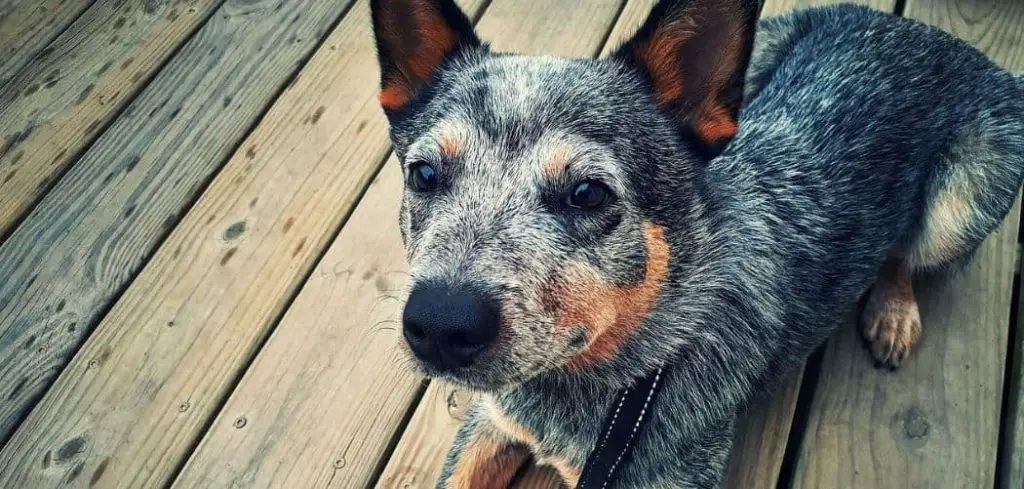A dog licking the air once or twice may look quirky or harmless—but when it becomes frequent or repetitive, it could be a sign of discomfort or a health issue. Air licking can signal anything from nausea to neurological concerns.
We outline the common causes of dog licking air excessively, what you can do at home, and when to seek veterinary help.
Dog Licking Air Excessively — Why It Happens
Excessive air licking in dogs is often linked to nausea, dental problems, anxiety, oral irritation, or even seizures. Some dogs may also lick the air in response to specific scents or as part of compulsive behavior. While it might appear harmless, persistent air licking shouldn’t be ignored.

Common Causes of Dog Licking Air Excessively
Nausea or Upset Stomach
Nausea is one of the most common reasons dogs lick the air repeatedly.
You may also notice lip smacking, drooling, grass eating, or vomiting.
Causes of nausea range from dietary changes to more serious issues like pancreatitis or kidney disease.
Dental or Oral Pain
Pain in the mouth can lead to odd licking behavior, especially when your dog avoids chewing or eating.
Look for signs like bad breath, red or swollen gums, loose teeth, or facial pawing.
Dental exams and professional cleanings may be needed to treat the cause.
Read more: Dog Eating Grass Excessively (What it means)
Seizure Activity (Focal Seizures)
Some dogs experience brief, localized seizures that manifest as odd behaviors—like air licking, fly biting, or staring into space.
These episodes can last seconds to minutes and may go unnoticed until they become more frequent.
Videoing the behavior and sharing it with your vet is crucial for diagnosis.
Foreign Object Stuck in the Mouth
Dogs that have something caught between their teeth or on the roof of their mouth may lick the air or paw at their face.
Hard kibble, string, or bone fragments are common culprits.
If you suspect a stuck object, visit your vet—don’t try to remove it yourself.
Anxiety or Stress
Anxious dogs may develop repetitive behaviors like air licking as a way to self-soothe.
This behavior may increase during stressful events like storms, loud noises, or being left alone.
Addressing the root of anxiety through behavioral training and calming support can help.
Response to Smells or Tastes
Dogs have an acute sense of smell and sometimes lick the air after detecting a strong or unusual scent.
This is typically short-lived and not obsessive unless linked to other symptoms.
If it becomes compulsive, it may warrant closer evaluation.
What to Do If Your Dog Is Licking the Air Excessively
Start by observing the pattern—does it happen after eating, during stress, or when your dog is idle?
Check your dog’s mouth (gently) for signs of dental disease, swelling, or lodged objects.
Track any related symptoms like vomiting, loss of appetite, or unusual behavior.
Avoid scolding your dog for the behavior—it may increase anxiety.
Record the behavior on video and share it with your vet for a more accurate assessment.
When to Call or Visit Your Vet
Contact your vet promptly if your dog:
Licks the air repeatedly or in a compulsive way
Shows signs of nausea, vomiting, or appetite loss
Has bad breath, oral bleeding, or facial swelling
Acts dazed, confused, or unresponsive
Experiences recurring or unusual behavioral episodes
Your vet may perform an oral exam, bloodwork, imaging, or neurological evaluation to determine the cause.
Read more: Dog Licking Lips Excessively (This subtle habit may be a warning sign)
Key Takeaway
Air licking in dogs may look harmless, but it’s often a sign of nausea, oral discomfort, or even seizures.
Monitor your dog’s behavior closely and seek veterinary help if the licking becomes frequent or is paired with other symptoms. Timely care can uncover the cause and bring your dog much-needed relief.
